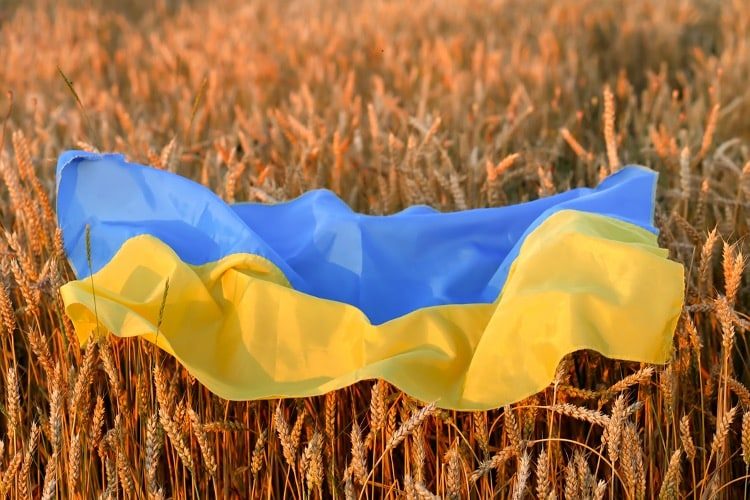
Notwithstanding animosities between the European Commission and Eastern European member states about Ukrainian agriculture exports, a considerable majority of MEPs renewed the suspension of agricultural tariffs on Ukrainian imports during a May 9 plenary session of the European Parliament in Strasbourg.
This recent vote in the wake of ongoing problems in Eastern Europe as a huge supply of Ukrainian grain imports has caused the price of cereals in the European market to plummet, hurting EU farmers. Consequently, the European Commission and some member states are having a face-off over ensuring the transportation of Ukrainian agricultural produce into the EU.
Notably, the Commission has tried to compromise with member states to ensure the flow of grain out of Ukraine — a non-EU country — by declaring a generous subsidy package for Eastern European farmers last month.
MEPs voted 537 to 42 supporting the extension of tariff suspensions, and this extension is slated to materialize June 6 to prolong the suspension of EU tariffs on Ukranian goods for one more year. Twenty-two MEPs from the nationalist ID group articulated the most outspoken opposition to the extensions.
Under a separate deal, Ukrainian industrial exports to the EU have enjoyed tariff-free transits and flows since January 2023.
Since the outbreak of the Russo-Ukrainian conflict, the EU has attempted to ramp up Ukraine’s economy and relied upon trade liberalization to guarantee the flow of Ukrainian produce. Critics have since slammed Brussels for bringing about the grain oversupply and affecting the livelihoods of farmers in other EU member states.
Poland, Hungary, and Bulgaria have been among the EU member states that have enforced temporary bans on Ukrainian grain since mid-April because domestic grain prices have crumbled. In particular, Poland has been grappling to balance its unflinching support for Ukraine with domestic troubles, with Warsaw’s Ukrainian grain embargo being a significant move to dissociate the country from the Ukrainian conflict.
Following the recent Commission vote, Polish MEP Patryk Jaki, from the ECR-affiliated Sovereign Poland, tweeted his remorse at his choice, stating that he had unintentionally voted the wrong way supporting proposals and tried to reverse his decision.
Last week, Poland also vetoed an EU asylum deal with African and Caribbean nations with Warsaw insisting on preferential terms for excess Polish grain to fend off the oversupply.
Ukrainian president Volodymyr Zelensky lashed out at the embargo on Ukrainian produce following talks with EU Commissioner Ursula von der Leyen in Kyiv, slamming EU member states of abetting Russian actions in Ukraine.
“Protectionist measures from our neighbors cannot but disappoint, softly speaking,” Zelensky addressed a news conference in Kyiv.
“All restrictions on our exports are completely unacceptable right now. They only reinforce the abilities of the aggressor.”
He elaborated: “We are waiting for the EU to stop all restrictions as fast as possible.”
In turn, von der Leyen portrayed the situation as “difficult,” but pledged to help Ukraine in exporting its agricultural products.
“The immediate priority now is that the grain transit goes seamlessly and at the lowest possible cost outside of Ukraine towards the European Union,” she told Zelensky.
“This requires very close cooperation of the different stakeholders. Therefore, we will jointly set up a coordination platform.”
Furthermore, von der Leyen reaffirmed her support for Ukraine’s EU membership bid, amid problems in European solidarity due to issues like the Ukrainian grain crisis.
Moreover, President of the Parliament Roberta Metsola urged member states to make concessions to enable Ukraine to join the EU.
“Once we have that political will, then from our side, the European Union needs to match the expectations with proper tasks,” Metsola told Euronews.
“That means asking the questions that have to be asked, making sure that help is given and step-by-step reach that goal.”
Previously, Zelensky convened with management representatives from the globalist investment firm BlackRock in Kyiv to discuss the establishment of a huge fund for the reconstruction of Ukraine.
Philipp Hildebrand, vice chairman of BlackRock, met the Ukrainian leader, who said that the meeting would send a “strong signal of strengthening the investment climate.”
“The details of the creation of an investment fund to restore Ukraine’s economy were discussed at a meeting with the management of the largest asset management company in the world, BlackRock. The main goal of the fund’s creation is to attract private and public capital for implementing large-scale business projects in Ukraine,” Zelensky declared on Telegram.
Additionally, the Ukrainian leader added ominously that Russians would soon receive an “unpleasant surprise” for their actions in Ukraine.
“I am not ready to communicate with you, to say when we will be advancing,” Zelensky reportedly told Euronews, referring to Ukraine’s much-awaited spring counteroffensive against Russian forces. “Because to some extent, this prepares the enemy. And therefore, I would like it to be an unpleasant surprise, not the other way around.”
“I think we will achieve the appropriate result,” he added, though he sad that he could not say if Kyiv’s counteroffensive would see “full sovereignty of Ukraine” restored eventually.
“I can’t say that yet, because it’s a war,” Zelensky explained.
On its end, the Kremlin vowed “severe and inevitable punishment” for Ukraine for a recent blast at the Kremlin overnight, according to top allies of Vladimir Putin. One of those allies even pledged to physically eradicate Zelensky. Putin ally Dmitry Medvedev likened Zelensky to Adolf Hitler and cautioned that he and his “clique” would have to be exterminated.
Likewise, the Russian foreign ministry maintained that there was “no doubt” Ukraine was responsible for the “criminal” drone strike and that “all those responsible for the strikes on the Kremlin will be found, they will face severe and inevitable punishment.”
Russia’s ambassador to the United States, Anatoly Antonov, also threatened that punishment would be “hard and inevitable,” calling the blast “insolent and presumptuous.”
Although the precise circumstances of the Kremlin blast remain unclear, Russia alleges the blast was an attempted assassination against Vladimir Putin by a pair of Ukrainian drones, while Ukraine has denied any responsibility and said that domestic Russian anti-government resistance may have been behind the incident.


